Search Results for: Spiders
Skip to resultsCan’t find what you’re looking for? Visit our FAQ page.
1,175 results for: Spiders
-
 Health & Medicine
Health & MedicineMost women get uterine fibroids. This researcher wants to know why
Biomedical engineer Erika Moore investigates diseases that disproportionately affect women of color.
-
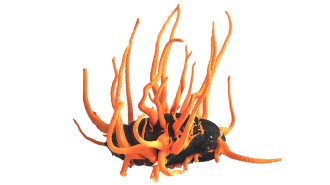 Life
LifeWhy these zombie caterpillars can’t stop eating
Sneaky chemistry by a real-life “Last of Us” Cordyceps fungus mind controls its zombie insect victims by convincing them they’re starving.
By Susan Milius -
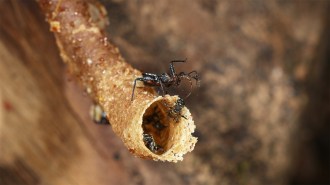 Animals
AnimalsThis tool-wielding assassin turns its prey’s defenses into a trap
This assassin bug's ability to use a tool — bees’ resin — could shed light on how the ability evolved in other animals.
-
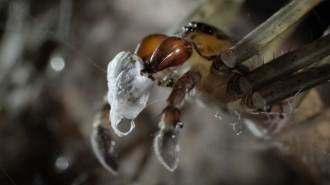 Animals
AnimalsClimate stress may undermine male spiders’ romantic gift giving
Even spider love lives show an effect of climate uncertainty: Stressed males may offer a bit of silk-wrapped junk rather than a tasty insect treat.
By Susan Milius -
 Animals
AnimalsThe mystery of how iguanas crossed the Pacific Ocean may be solved
The iguanas' 8,000-kilometer trip — one-fifth of the Earth’s circumference — is the longest made by a flightless land vertebrate.
By Jake Buehler -
 Climate
ClimateWarming is chasing cloud forests steadily uphill
Cloud forests are biodiversity hot spots and crucial water sources. But climate change and deforestation are shrinking their range, new data show.
By Douglas Fox -
 Health & Medicine
Health & MedicineHumans have shockingly few ways to treat fungal infections
It's not quite as bad as The Last of Us. But progress has been achingly slow in developing new antifungal vaccines and drugs.
-
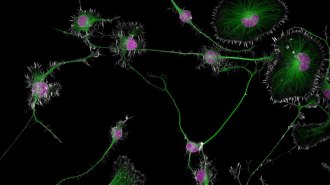 Life
LifeHere are some stellar picks from Nikon’s top microscopy images of 2024
The annual Small World photomicrography competition, now in its 50th year, puts life’s smallest details under the microscope.
-
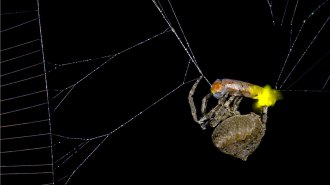 Animals
AnimalsThis spider uses trapped fireflies to lure in more prey
Male fireflies trapped in the spider’s web flash femalelike lights, possibly luring in other flying males and allowing the arachnid to stock up on food.
-
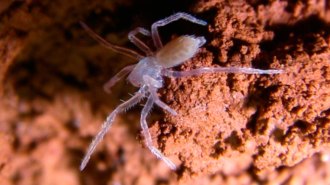 Animals
AnimalsThis spider makes its home in the burrows of extinct giant ground sloths
Caves made by extinct giant ground sloths make the perfect home for a newly discovered type of long-spinneret ground spider from Brazil.
By Jake Buehler -
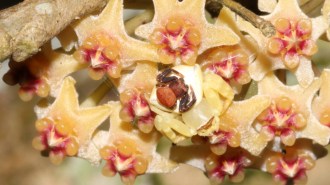 Animals
AnimalsIn a first, these crab spiders appear to collaborate, creating camouflage
Scientists found a pair of mating crab spiders blending in with a flower. The report may be the first known case of cooperative camouflage in spiders.
-
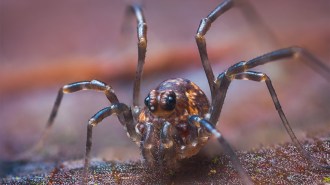 Animals
AnimalsDaddy longlegs look like they have two eyes. That doesn’t count the hidden ones
Despite its two-eyed appearance, Phalangium opilio has six peepers. The four optical remnants shed light on the arachnids’ evolutionary history.